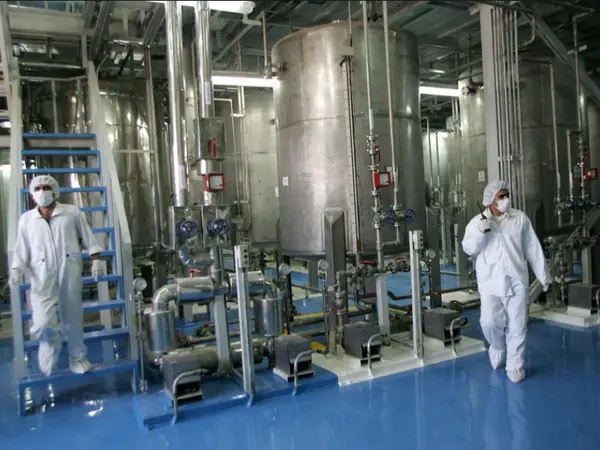The Iranian Reformist Front's call for an immediate return to the nuclear deal to solve Iran's economic problems has faced tough reactions from conservatives.
The Reformist Front, an umbrella organization that coordinates ploicies among a range of reformist political parties and organizations warned in a statement released on November 7 that "Any delay in returning to the JCPOA will be damaging for the nation's interests."
The statement added that "While expressing serious concern about the way Iran's foreign policy and its nuclear diplomacy is being furthered, we hope that the government would prevent missing the opportunity to end sanctions against Iran and to prevent Iran from lagging behind the quick pace of development in Asia and Iran's neighboring countries."
The statement was issued after Iran's chief nuclear negotiator Ali Bagheri-Kani said that talks with the JCPOA partners are going to be resumed by November 29, but the foreign ministry spokesman on Monday issued three conditions the US must meet, including lifting all sanctions in one step and providing a guarantee that future US governments will not withdraw from the deal.
The Reformist Front's statement charged that 15 years ago, Iran's nuclear case was sent to the UN Security Council while Iranian officials chanted revolutionary slogans rather than negotiating with the world. The statement added that the reformists expected the new government and Iran's new political structure, consolidated under conservatives, to pave the way for lifting the sanctions and solving back-breaking economic problems, but unfortunately, one cannot see such an approach being taken.
The reformists further blamed Iranian "radicals" for playing into the hands of the enemies that do not want the sanctions against Iran to be lifted.
Accusing Iran's reformists of "miscalculation" in a commentary on November 9, the IRGC-linked Fars news agency claimed that sending Iran's nuclear case to the UN Security Council was first used as a threat against Tehran when reformists were in power.
Fars further charged that Iran's reformists supported a foreign minister for 8 years who has confessed that he did not know that the word "suspension" was used in the JCPOA rather than "lifting", for sanctions. The website also charged that it was President Hassan Rouhani who accepted the voluntary implementation of the Non-Proliferation Treaty (NPT) and the Additional Protocol fearing that the United States was about to start a war against Iran. "That was a miscalculation by Iran's reformists," said Fars.
Meanwhile, hardline daily newspaper Kayhan, which is funded by Supreme Leader Ali Khamenei's office, attacked reformists in a fron-tpage article on November 9 and claimed that the reformists suggest the United States can return to the JCPOA without lifting the sanctions it has imposed on Iran.
Kayhan accused the reformists of distorting the reality and serving the interests of those who have imposed sanctions on Iran. The daily called the JCPOA "nothing but sheer damage."
The daily also accused Iran's reformists of beatifying the United States' hostile acts against Iran and trying to conceal their own footprints in the series of actions that have led to the current situation. Kayhan reminded that reformists told Iranians immediately after signing the JCPOA that sanctions are now part of history. But sanctions were redoubled while the reformists were still in power in Iran. Kayhan also claimed that decisions made by reformists led to the shutting down of Iran's nuclear industry and pouring concrete in the heart of the nuclear reactor in Arak.
"The reformists are to be blamed if the JCPOA has no achievement. But they keep accusing their critics," Kayhan wrote, adding that the reformists criticize lack of development in Iran as a result of attaching priority to the country's military power, but they forget that they have been in power holding key government positions during the past 43 years, including holding the executive body during the past 8 years.
Kayhan expectedly, did not mention that nuclear sanctions have impeded Iran’s economic development and major policies are decided by Khamenei.
Kayhan wrote that the same reformists who are now saying demanding guarantees from the US is impractical, used to say in 2015 when the JCPOA was signed that "The US Secretary of State's signature guarantees that the agreement will work."
